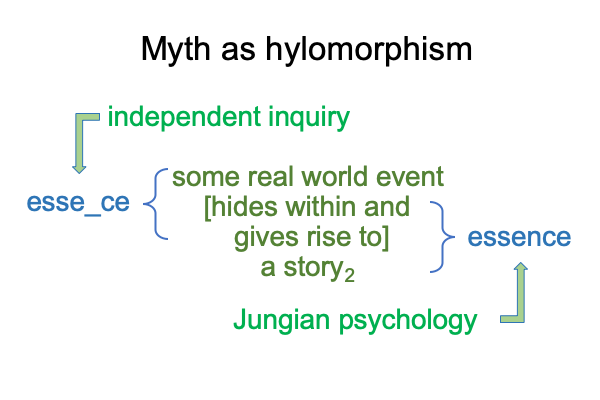0022 When Father Longenecker begins his discussion of myth. It seems that he is discussing Jungian psychology.
Jungian psychology investigates the way that the mind works, especially in regards to the so-called “collective unconscious”, mental habits common across civilizations. This corresponds to essence.
Essence contributes to the realness of the story.
0023 However, there is the complement to essence, esse_ce, that is discovered through independent inquiry. One could label this inquiry, “science”, but the modern term means building mathematical and mechanical models.
The premodern term for “science” is “natural philosophy”. Natural philosophy seeks out a thing or process or event, tries to explain it, and reaches understanding of the thing itself, not the observable and measurable facets of the thing.
The thing itself has a hylomorphic structure.
0024 So, an independent inquiry, having great compatibility with natural philosophy, may try to figure out the real event that hides within and gives rise to myth2. The discovery of the event is prophetic, since it cannot be predicted by examining the story itself. Only after the discovery of the event, does the myth become more that pure essence (fantasy). The story gains esse_ce.
Esse_ce contributes to the realness of the myth in ways that essence does not.
0025 Here is a picture.

